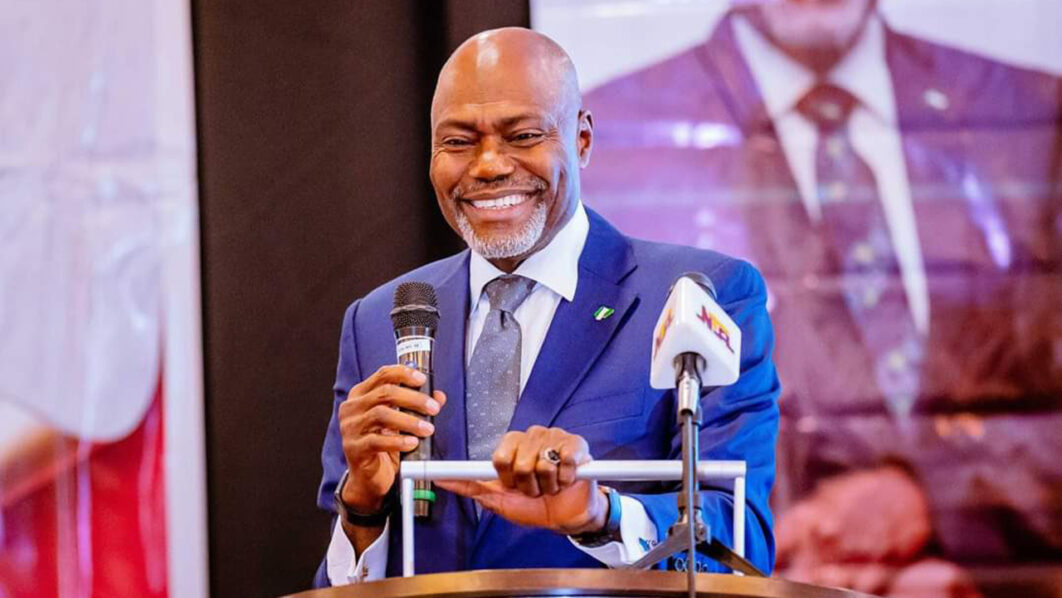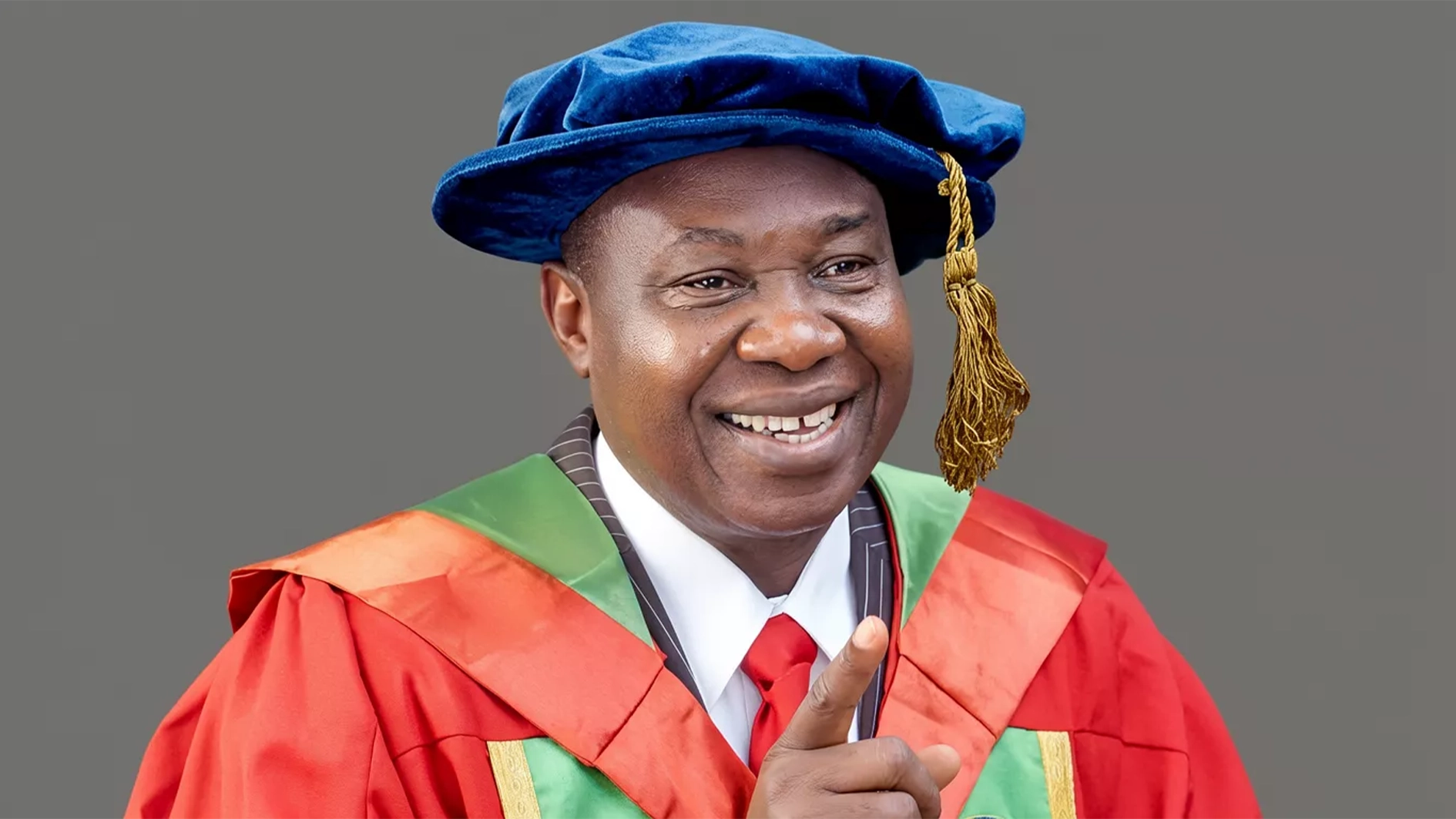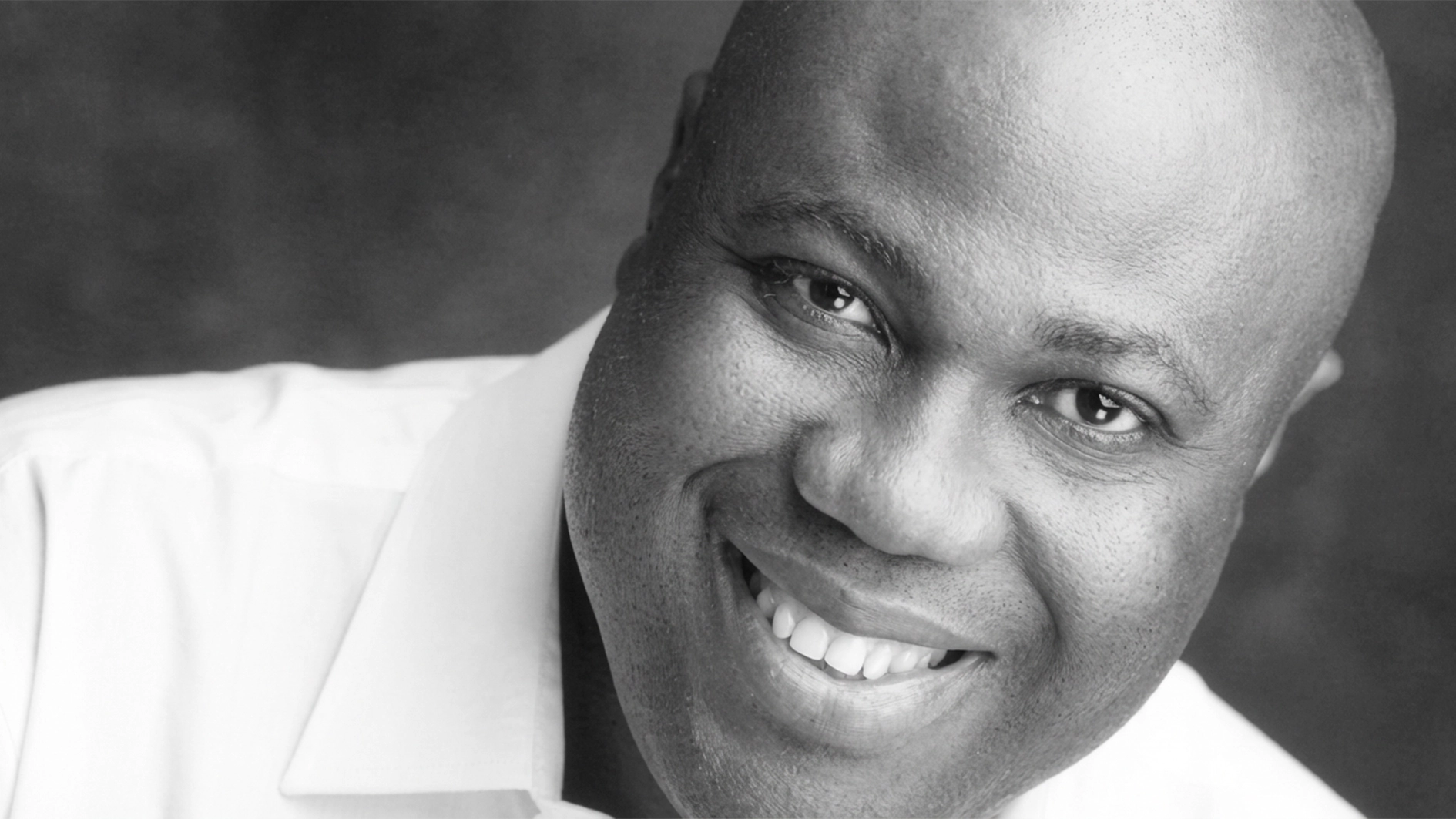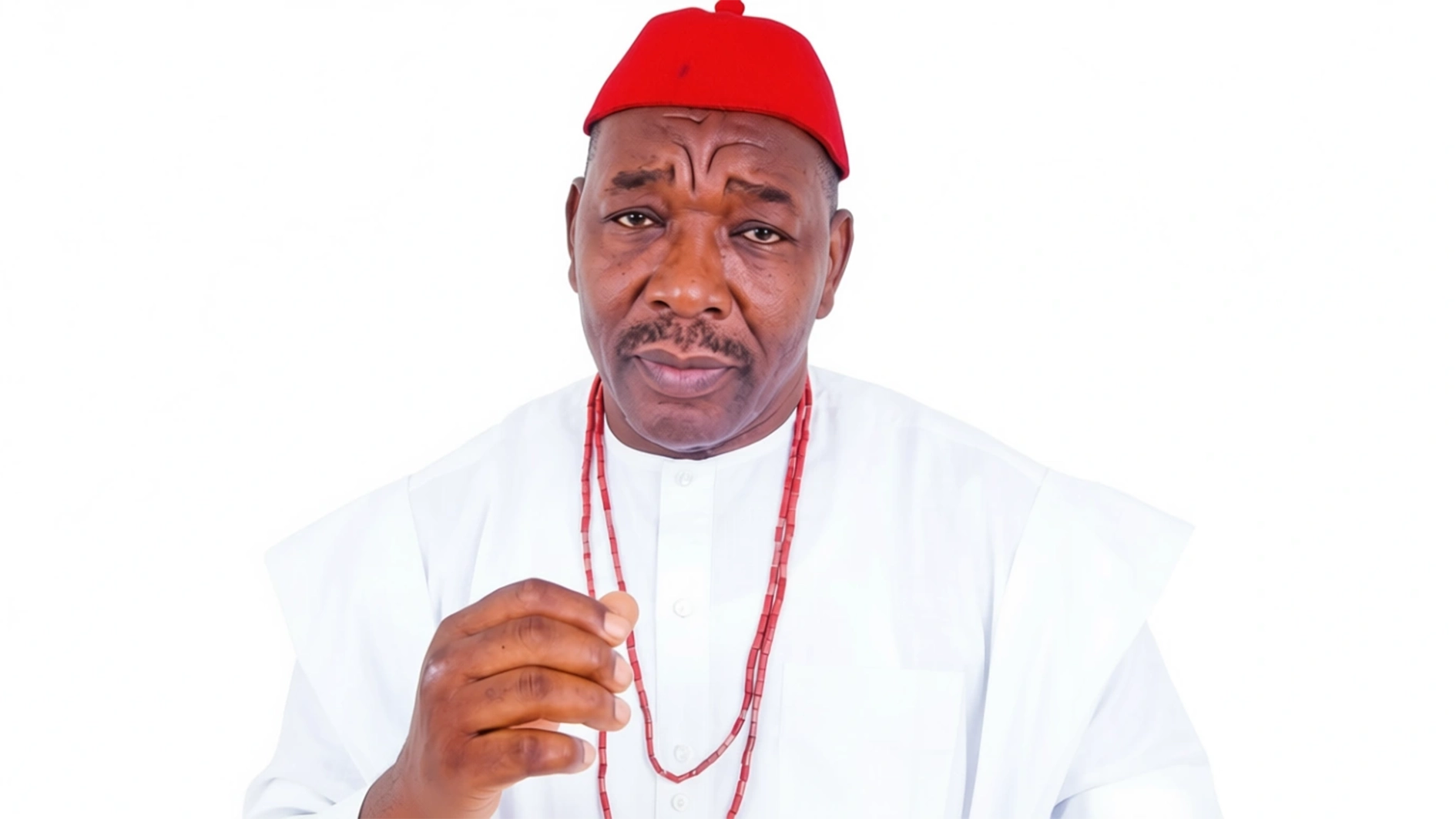
Yusuf Ali (SAN) is a legal luminary cum scholar with decades of experience. He serves as patron and legal adviser to many professional and socio-cultural groups in the country and has earned scores of honours within and outside Nigeria, the latest being the Kuliyan Ngeri Kuliyan of Ilorin Emirate bestowed on him by the Emir of Ilorin. Ali, who sits on the boards of many companies and institutions, in this interview with MANSUR ARAMIDE in Ilorin, speaks on sundry national issues, including the ongoing efforts to further review the 1999 Constitution, electoral reforms, the political party system and calls for return to the regional system of government. He also gives an insight into his personal life and convictions, underscoring two efficacious panaceas to all human problems – a clear head and prayers. Excerpts:
Sir, many people blame the 1999 Constitution for various crises bedeviling the country while some blame the operators of the constitution. What is your view?
I have had almost an unchanging view for so many years now that the problem with our country is not the constitution; it is not the lack of laws and regulations. Nigerians are the problems of Nigeria. What I am saying is that a constitution is the dead letters of the law. It is the operators that put life into the provisions. If you give the best constitution to the worst set of people in the world, they are not going to make any progress and; if you give the worst constitution to the best operators, they will make success of it.
The American constitution initially in 1787 was like a pamphlet but the people made it work. All the subsequent amendments came by their experiences. The problem of Nigeria, as far as I know, is not the constitution. Of course, we have heard a lot of discussions that if we go back to the regional system of government… The regional government that was practised for six years but wrecked? We did regional; we did parliamentary; it lasted barely five years and the country almost went under.
But you see, there is always attraction to things that are nostalgic. Many of those people today clamouring for regional government, for the parliamentary system of government were not even old enough to see the operation and failure of those systems. Many Nigerians who were born in 1964 experienced democracy for just one and a half years before it collapsed in January 1966, and thereafter, they didn’t see democracy until 1979 for four years and thereafter 1999 till now.
Most people clamouring for regional government are people who never really saw how these things worked. So, for me, I don’t believe the constitution is the problem of Nigeria because Nigerians are the problems of Nigeria. They are the problems of the constitution. I can give you instances.
The constitution made elaborate provisions for how to impeach the president, how to impeach the governor, the vice president and the deputy governor. But we are seeing how we do it in practice. A governor that has firm control of the House of Assembly doesn’t need to wait for his deputy to commit an offence to get him removed. We have seen it in practice; it is not about the constitution, it is we.
I am not saying the constitution is perfect. No! No human being, institution or document is perfect. But there must be the willingness to make it work.
Now that the National Assembly is in the process of reviewing the 1999 Constitution, which part(s) of it will you want or expect to either be yanked off or amended?
If you ask me, what areas, number one is the provisions of Paragraph Two – directives for state principles that are not justiceable should be promoted to be justiceable. That is people can go to court to challenge the government for failure to do what it ought to do. I also believe that we have to really entrench the autonomy of the local governments properly in line with the decision of the Supreme Court, which the state directives represent.
You see, the makers of the constitution assumed that reasonable men will be the people that will be operating the constitution; they assumed they will be honest. But as it turned out, the operators only operate the constitution to their own advantage, not minding if it’s to the detriment of the system.
Then, we must find a way to ensure that money politics is seriously reduced. A situation where three to four people would own political parties is not ideal for democracy. A political party is supposed to be a mass movement. Those who are old enough would tell you that in the first Republic and even 1979 -1983, it was the ordinary members of the parties who were contributing money to run the parties. Now, we have gone full circle where members of the parties expect the parties to be giving them money. We must find a way back to where we started and the way is we should not allow individuals to own political parties because those who own the piper would dictate the tune. We must do something to strengthen the system; and we must continually insist that votes must count. I stand to be corrected that Nigeria is probably the only country that you will see every part of the country portray a mini-war situation during elections.
We have seen elections held elsewhere like the U.S.; we don’t see policemen carrying guns about at the polling stations. Our own here, before the election it is always as if we are preparing for war. The day of the election is virtually war by other means; the collation of results is another war. Why should it be so? I always tell people that if I want to serve you and you say no, that shouldn’t be an issue. We must find a way around this politics of do or die; we must allow votes to count. That is the only way to hold political office holders to account otherwise we will just be going around in circles.
We must strengthen our judiciary. Paying a higher emolument is not enough. The environment in which justice is delivered and administered is very important as well as taking care of those who run the system. Welfare of judges and those who work in the administration of justice generally must be reviewed.
We must modernise our police. I remember former president Olusegun Obasanjo wanted to do the most ideal thing by removing ‘Force’ from the police. The police during the colonial era was a force of repression against the agitators of independence. Unfortunately, after independence, the police still retain the same psyche; the police have now become the weapon of oppression in the hands of the elite. You hardly hear anywhere where Force is attached to Police because it is the law enforcement unit of the civilian group. That is why it is not a member of the Armed Forces; that is why all civil issues should go to them; internal security should go to them. And if you recall, when the civil war was to start in 1967, it was initially called Police Action. The police were drafted to quell it. It was when they were unable that it became an issue for the military. We must find our way back to ensure that the police are not seen as a repressive force in the hands of the rulers but seen as serving the common man.
How will you react to the position that what the country needs to make progress is the review and adoption of the 2014 National Conference report, not constitution review?
No matter what you do, what you need to do is the proper orientation of Nigerians. If you bring the American constitution to Nigeria, given the way we are, it will fail here; not because the constitution is not good but because we are bad people; pardon my language. Basic things are there to reason over. There is foreign exchange issue, no doubt about that. But does a local farmer plant vegetables beside a river with or in dollars? There are lots of difficulties we bring on ourselves because of our nature. The thinking of an average Nigerian is that as long as my family is comfortable, my neighbour and his family can go to hell. That is not a good attitude, and that is what is destroying us as they always say that your altitude is determined by your attitude.
I know our leaders have their problems but I have stopped blaming our leaders alone because our people are as bad as, if not worse, than the leaders. We are the signpost that tells our leaders how to behave. If we the followers insist on what is right, leaders won’t have any option than to queue because they are minority while we are majority. That is why I don’t join them in calling for the head of the leaders. If the best leader in the world comes here, Nigerians will demystify the person. Nigerians don’t have minimum standards for shame. People should have minimum standards for which they would fall. Anything goes here in Nigeria and any country where anything goes will never make progress. I always tell people that beheading is never a solution to headache.
Do you think Nigeria will be better if it reverts to regionalism?
Who will be running the regional governments? Are they not Nigerians?
How do you think revenue should be shared by the various tiers of government?
I was going to ask for more devolution of power to the constituent parts of the country. When I was in primary school in 1960, when I was in primary five, I knew the effectiveness of local governments. Local governments should rely on takings on motorcycle licences, television licences and radio licences. We have thrown all these away. They still collect them in England but because we have access to easy money from oil, we jettisoned all the things that ordinarily ought to be sources of funds to the purse of the government. And for goodness sake, growing up in the 70s, it was the function of the local governments to collect refuse in the town, not the state government. Then parks and gardens were for local governments.
There must be devolution and there should be a new revenue allocation formula that will not give the Federal Government more than 50 per cent of what is allocated to the other tiers of government. I don’t think the present arrangement is right. That is why there is this battle for the soul of the Federal Government. The new federal allocation I am looking at is something that the Federal Government will have 40 per cent, states 30 per cent, local governments 30 per cent.
You have handled many electoral matters across Nigeria…
(cuts in) To the glory of God, Alhamdulillah!
What are those things we are not getting right in the electoral process based on your experience?
The votes are not counting and that is the function for the election umpire and the security agencies. If the umpire plays its role in accordance with the law and the security agencies stand to defend the votes of the people, the number of disputes after elections will be minimal. Never mind the attitudes of politicians because some of them that have even minimal votes still want to approach the court to challenge it. We have to appreciate the dilemma of politicians; they are natural optimists. A man whose wife will not vote for him, will also tell you he will win (laughs). Are you getting my point?
On the way forward, I think Nigeria is more than ripe to have independent candidates. We should not always allow our elections to be controlled and monopolised by political parties. We have seen that political parties are just like private fiefdoms with three to four persons owing them. That is why it is possible for somebody to say the chairman will go tomorrow and the following day the chairman will go. The system is not being assisted because of the power the governors now have. They now control the party chairmen in their states because they are the ones who have the money to run the parties.
How do you think independent candidature will survive in Nigeria especially in the rural areas dominated by illiterates?
It will survive. For example, the local council election is more grassroots-based. A lot of people will vote for some other people who ordinarily did not get nominations from their parties. But you must agree with me that people know those who are relevant to them in their communities.
Despite the fact that only five political parties participated in the last local council elections in Kwara State, some electorates voted for parties that did not field candidates. Where then will independent candidates fit in?
It showed you the level of ignorance of some people. But if you come out in your locality, won’t your people support and vote for you? The fact is let us dilute the powers of political parties; they are letting us down; they are encouraging monetisation of the political system; they have disappointed us.
Recently, President Bola Ahmed Tinubu announced his intention to reshuffle his cabinet. What are the qualities you expect from the new ones that would come on board?
I am afraid I am not in the position to appoint anyone and I am not interested in being appointed. But I know the president who wants to appoint them should know from where and for what. I expect him to know who can assist him in propelling the wheels of the state. That is just my own. I wouldn’t know how his inner mind works. He should be able to know those who can assist him to achieve his purpose.
If President Tinubu should seek your counsel, what would be your advice to him?
I will advise him to do all in his power to lessen the suffering that is apparent and I am happy that the President himself knows this because if you see his opening speech on October 1, he recognised that there are hardships in the land. So, whatever he can do to lessen the hardships should be done.
Aside from the common experiences by Nigerians, what about your professional advice sir?
Running a government is not about the law alone. He has not breached any law that I know. That is why I have restrained myself to a sociological point; people are suffering.
How can the government address that?
First, the government should subsidise the means of production, especially agriculture. Since we are bringing in farm implements from elsewhere, those implements should attract zero Customs duties.
Secondly, pharmaceuticals should be accorded an enabling environment. Government should encourage the revival of many industries that have packed up. Michelin, Dunlop among others are companies that would bring a lot of jobs for many people. Of course, the government must invest heavily in infrastructure development. That is why the PPP model is now the way to go if we are serious about developing our infrastructure. Anybody who has travelled on Ilorin-Ibadan road in the last one week will tell you that the gridlock caused by trailers on that road is worrisome. A journey that used to take one and a half hours now takes over three, four hours. We should address all those issues.
What is your response to the claim that the rising crime record is propelled by the socio-economic situation in the country?
That crime rate is on the increase is apparent to everybody. People can no longer sleep with their eyes closed anymore. I just heard on the radio some happenings in Kwara South that forced some traditional rulers to relocate from their domains because of kidnappers. Truly, poverty and economic hardship are part of the reasons for the rising crime rate. But some people now adopt crime as business, which is dangerous. That is why we need to appeal to our security agencies to do more. As I always tell people, let’s deploy technology to fight criminality. I have suggested it before; we could equip drones with cameras to do recognisance. They will get pictures and images of where the bandits are and when you transmit them to the headquarters of the security agencies, they can bombard there in minutes with the aid of Google. That is the technology Israel is using to locate the people they are at war with. Why should it be difficult for us? No one asks us to produce the technologies; we are just to buy them. Aside from that, there are so many bright Nigerians that will develop most of these gadgets and assist the country if given the opportunity. What are our universities and institutes doing? We have satellite in the orbits that can be used for most of these things. It is time we think out of the box.
Will you agree that the judiciary is creating more problems for the country by the way it handles cases? People now say that there are two sets of laws for the rich and the poor…
I do not agree that interpretation of the law is not the same. Let me ask you: how many poor people go to court? You talk as if the rich and the poor go to court together. No! It’s those who are able to make ends meet that go to court.
The problem of all the institutions in Nigeria is Nigerians. You know we have been talking about politics, election et al. Election on its own is fine; it is the intervention of human beings that turns it to something else. It is the same with the judiciary. Our judiciary is manned by the very best brain you can find in any country. But Nigeria is a peculiar country with peculiar people. An average Nigerian does not believe that justice can be given for free; that is our mindset, which is a shame. If you and I have a matter in court, if both of us don’t believe the judge can be reached, the judge will do his work. But hardly will a Nigerian go to court and will not be looking for someone who can talk to the judge; that is the truth. We must change. If we want a good system, we must be good people.
Does it mean that this kind of mentality could have affected some judgments?
No! I haven’t said that. I don’t write judgment. I just told you that Nigerians don’t believe in merit. Even when somebody has a bad case, he still believes he should be able to manipulate his way by getting across to whomever. We do not have a deep sense.
Imagine, serious nations have started preparations for the next Olympics now. Nigeria will not start preparations until three to six months to the event and expect to win laurels. What kind of cheating mentality is that? The world cup also; we will be doing wishy-washy about it and expect magic. I always tell people, though God is omnipotent, He is omniscient; He is omini-everything but there are so many things Allah will not intervene in because He has given you everything to develop yourself. There’s no serious country that prays before going to war; it just has to prepare. For me, our problems are self-perpetrated, self-imposed yet we expect God to leave more serious things and come to attend to the silly things we carry around. We can’t feed ourselves; what concerns Allah with that having given you abundance of everything in terms of nature. And He has given some people brains that even if nature is not going to support you, He has created things that can support you.
There is irrigation. The state of Israel is in the middle of nowhere; it is a pure desert but it is producing enough food for the people and even for export. So, if you are lazy, you are on your own. A student that does not read for exams but prays will fail. It is only when you try that God will assist you to do better. But without aspirations, there can’t be success.
You must have encountered some obstacles in your legal practice. What are they and how did you surmount them?
I always tell people that Allah is the source of whatever success I ever attained in life. On my side, I have always ensured that I never cut corners and I work as hard as I can. I try to be honest; I try to play fidelity to relationships. When challenges come, I try to deplore my God-given talent and brain and then pray that God bless my efforts. I don’t just pray and expect miracles. No! I always do my own part; it’s for Him to bless it.
Can you recall the most terrible moments you ever had sir?
Well in life, we at times experience certain individual confrontations and challenges. I have lost my wife; I have lost my son-in-law. My attitude to them was that the situations were beyond me. I always tell people that two things solve problems – clear heads and prayers. If your head is clear, you will be able to see available options before you will now pray towards it. Simple!






